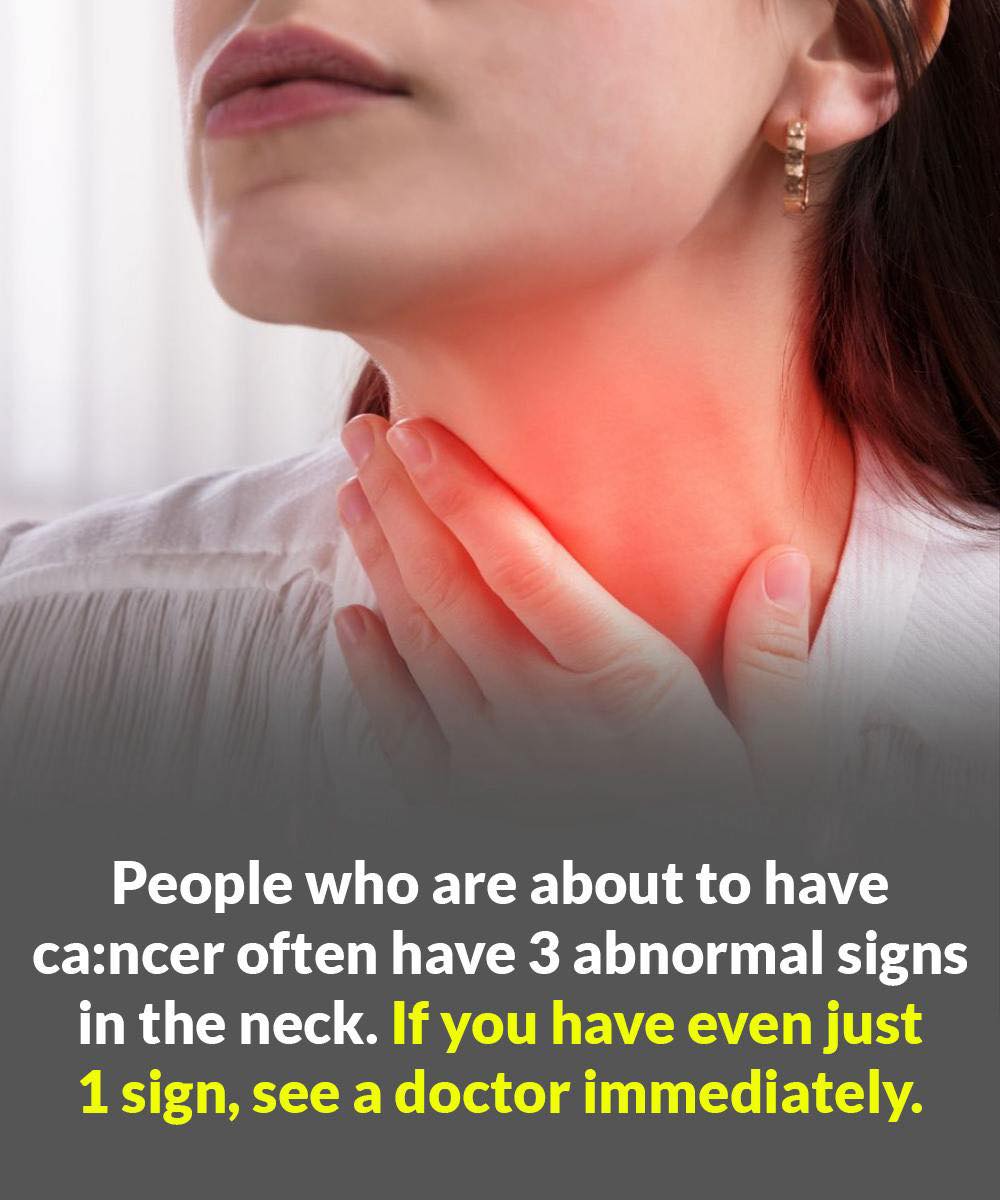You should have known this sooner.

1. Persistent Lump or Swelling
- Description: A lump in the neck that doesn’t go away after a few weeks can be a warning sign. It may be painless and gradually increase in size.
- Possible Causes: This may indicate swollen lymph nodes due to infections, but in some cases, it can be related to lymphomas, thyroid ca:ncer, or metastasis from other cancers (such as mouth or throat).
- Action: Any lump that stays for more than 2–3 weeks or keeps growing should be evaluated by a doctor.
2. Chronic Hoarseness or Voice Changes
- Description: If your voice becomes hoarse or changes tone without a clear reason (like a cold), and it lasts more than 2 weeks, this can be a warning sign.
- Possible Causes: Tumors pressing on the vocal cords or involving the larynx (voice box) or thyroid can cause voice changes.
- Action: Persistent hoarseness should always be examined, especially if it is not linked to a recent illness.
3. Difficulty Swallowing (Dysphagia) or Feeling of a “Stuck” Throat
- Description: A sensation that food is getting stuck in your throat or discomfort when swallowing, especially if it gets worse over time.
- Possible Causes: This may be caused by tumors growing in the throat, esophagus, or nearby lymph nodes compressing the esophagus.
- Action: If this symptom appears and persists, it could be a serious warning sign and requires prompt medical attention.
🚨 Why These Signs Matter
The neck contains many critical structures, including lymph nodes, the thyroid gland, and passageways for breathing and swallowing. Any abnormal change in this area — especially if it’s painless and long-lasting — can be an early clue to serious underlying conditions, including ca:ncer.
✅ When to See a Doctor
- Any lump that doesn’t go away in a few weeks
- Ongoing hoarseness not caused by a cold
- Trouble swallowing or persistent throat discomfort
These symptoms don’t always mean ca:ncer, but catching potential problems early can make a big difference in treatment success.